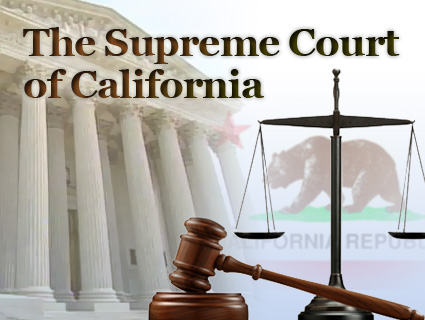Justices are supposed to put aside any personal conflicts when deciding cases before them. But justices are not robots and dual concerns will be eating at California Supreme Court justices when they decide on arguments dealing with the public pension case they agreed to hear out of Marin County. The justices’ decision could firm up pension protections, which as public servants they also partake, or reduce government obligations to pension liability that would likely make more revenue available to a court system that can use the money.
While the case centers on pension-spiking, a practice to add revenue sources in the latter years of employment to boost pension calculations, the heart of the case is the so-called “California rule.” That rule, which came out of a court decision decades ago, declares that pensions offered when a public employee is hired becomes vested, protected by contract law, and prevents alterations to pension benefits that could reduce government costs.
Judges are, of course, covered by pensions in California so any ruling the Supreme Court makes could affect pensions for California jurists. Ed Mendel, in his Calpensions blog, covered the conflict of interest faced by the judges in this area. However, if the pension obligation on governments is eased, that could also make more money available to improve the state’s court system.
While individuals and businesses have been complaining for years about the slow judicial process, they have nothing on those directly involved with the courts themselves. Court officials constantly warn that the courts are short-changed. It has been an annual clarion call of Chief Justice Tani Cantil-Sakauye.
Protecting pensions already earned but allowing cuts in pensions going forward would reduce the costs eating away at government budgets allowing for more dollars to pay for other services, including the court system.
Indeed, the Chief Justice participated in a forum prior to the Thanksgiving holiday discussing threats to jury trials of which she is an advocate. One issue of concern is costs related to the system.
The Supreme Court justices will be walking a tightrope when they take on the pension case (which will wait to be consolidated with a second case covering three other California counties) eyeing both their own long term personal interests with an opportunity to boost the system in which they work.


